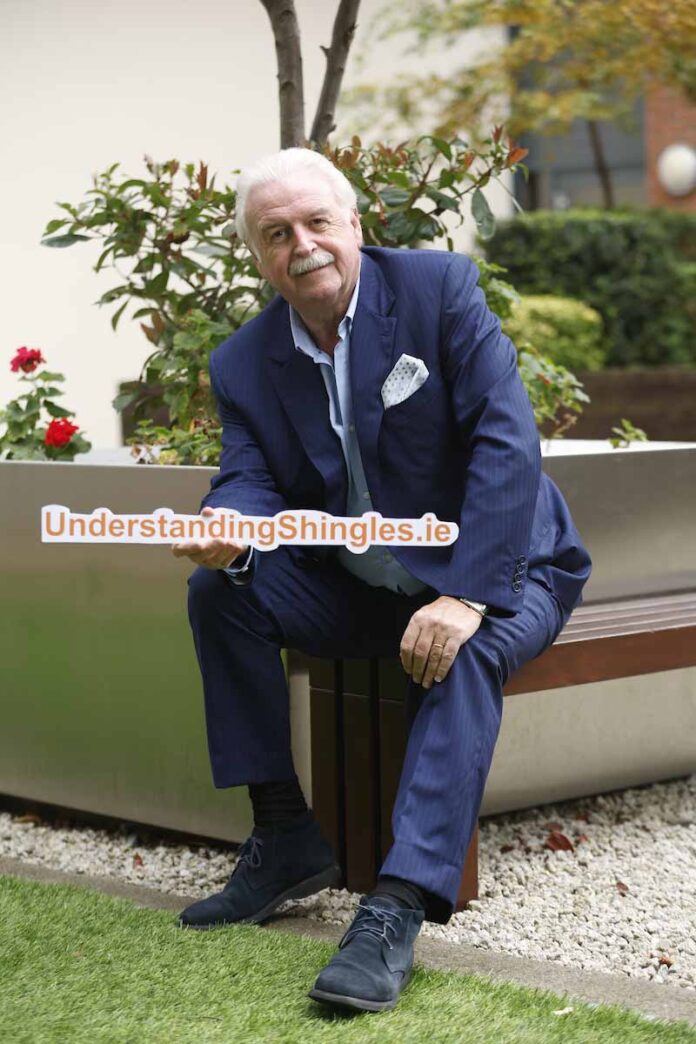
GSK Ireland released new data from an Irish survey this week, commissioned and funded by GSK, highlighting some significant misconceptions in the understanding of shingles risk, symptoms and complications among people aged 50 and over, who are particularly at risk of the condition.
Most common in people +50 years of age and older, and those with a weakened immune system, shingles is caused by the reactivation of the varicella-zoster virus (VZV), the same virus that causes chickenpox. As people age, the strength of the immune system response to infection wanes, increasing the risk of developing shingles. By age 50, VZV is present in almost all adults and may reactivate with advancing age.
AWARENESS
The research shows that just over one quarter (28%) of Irish people are not aware that you can develop shingles more than once and over four in ten (42%) did not know that blindness is a rare complication of shingles. Over four in ten (41%) incorrectly believe that shingles is contagious, while a quarter of people surveyed (25%) did not understand the link between chickenpox and shingles. 21% of those surveyed are also unaware that shingles can cause long-term nerve pain.
The launch of the GSK ‘Understanding Shingles’ research findings aims to raise awareness and address the lack of knowledge about the risks and impact of shingles, and to encourage those at risk to speak with their doctor, practice nurse or pharmacist about shingles risk and management.
With almost six in ten people (58%) believing that shingles will have an extremely negative impact on their quality of life, the research, conducted in Ireland, also revealed that 60% of respondents perceive shingles to be a serious disease, with 59% of respondents feeling that they are at high risk of developing shingles.
It also shows that people over 50 in Ireland have good awareness of the common signs and symptoms of shingles – including a red rash (93%), severe pain (90%), blisters (80%) and long-term nerve pain (79%). Only 58% of those asked were aware that blindness is one of the possible complications of shingles on the eye. Knowledge also differed on contributing factors such as a weakened immune system (72%), being under stress (52%) and age-related declining immunity (66%).
1-IN-3 AT RISK
One-in-three people who have had chickenpox are at risk of developing shingles in their lifetime. The disease, which typically presents as a rash, with painful blisters across the chest, abdomen or face, is often described as aching, burning, stabbing or shock-like.
Following the shingles rash, a person can also experience post-herpetic neuralgia (PHN), a long-lasting nerve pain that can last weeks or months and occasionally persist for several years. PHN occurs in around 20% of all shingles cases, with the over-50s particularly at risk.
10-15% of shingles cases can affect the eye which in some cases can result in serious eye complications.
‘DEBILITATING’ CONDITION
Marty Whelan is the official ambassador for GSK ‘Understanding Shingles’ disease awareness campaign. As part of his role, Marty will lend his voice to help improve awareness of shingles, and he will also feature in a radio advertisement.
“Working on this Understanding Shingles campaign has been eye opening for me as I was totally unaware of how debilitating the condition can be, especially the pain that comes with it. That’s why creating more awareness about shingles is essential,” he said.
“So I’m appealing to everyone over the age of 50 and to those over 18 with a weakened immune system to take the time to make themselves aware of factors that put them at risk of shingles, as well as the signs and symptoms of shingles. And if it helps, you can talk to your GP, pharmacist or practice nurse about shingles. Taking control of your health, especially as you get older, is one of the best things you can do for you, your family and your future.”
GSK Ireland are also running a shingles disease awareness campaign across television as well as outdoor advertisements such as billboards and bus shelters, encouraging people to speak to a healthcare professional or visit www.understandingshingles.ie to learn more about shingles.











